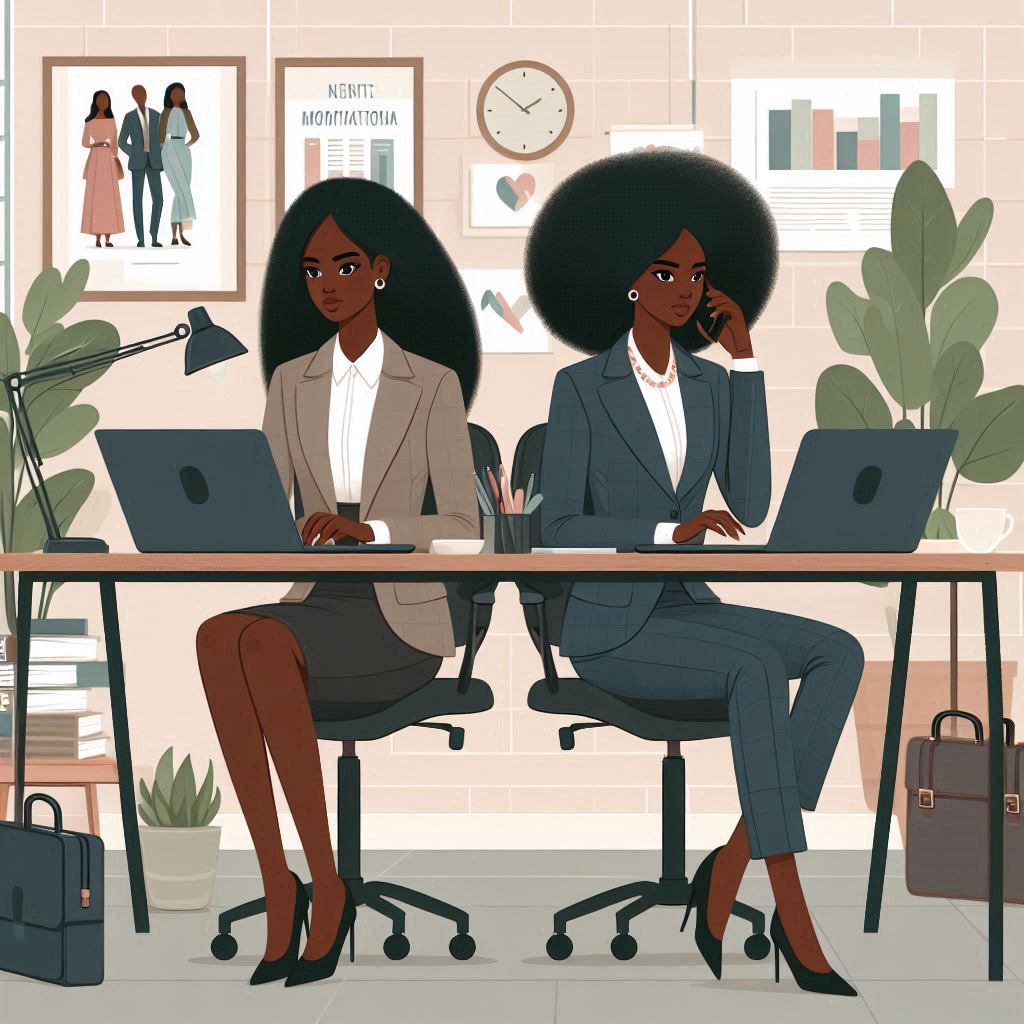
|
Getting your Trinity Audio player ready...
|
Amina Sambo, 34, describes herself as a dedicated teacher passionate about learning and teaching. In a conversation with Naija Feminists Media (NFM), she shared her vision of making a meaningful difference in the education sector—a career she had always dreamed of. However, a significant obstacle stands in her way.
“I might want to call myself unlucky in my career. Sometimes, I feel I should have taken a different route, but deep down, I know that’s not the issue. The people I’m surrounded by are why I feel this way,” Amina admits.
With ten years of experience as a teacher, Amina has applied for a promotion to a senior teaching position five times. Still, she has been repeatedly passed over in favour of male colleagues with similar or lesser qualifications.
“I know I’m qualified for the role, but it seems like they always choose a man for the position,” Amina shares, her frustration evident. “I have to work twice as hard just to be seen as equal, and the irony is that the men who get promoted often come to me for help on issues they struggle with.”
Amina has also noticed how mothers in her workplace are treated like liabilities.
“Many women have quit the school I work at. For those who stay, I always try to support them through the subtle chaos, but I’m growing weary myself,” she told NFM.
She’s had enough and is ready to quit her job. According to her, waiting will never change anything.
“I have already prepared my resignation letter. My family has agreed to support me, and I have plans to start my own school, that’s how much I believe in my capability. All women should feel this way about themselves,” she remarked.
This experience resonates with many women, who often wrestle with self-doubt, believing they are the problem despite their exceptional efforts.
A More Condescending Case
Martha, another professional who preferred to remain anonymous, has experienced a different but equally toxic workplace environment. As a journalist, her two years at a media enterprise left her drained and doubting her worth.
“I was disrespected from the beginning, mostly because they knew my age and thought less of me for being young,” Martha shared. She initially chalked up the mistreatment to a learning experience, convincing herself that she had to endure these tough steps to grow.
The turning point came when her boss raised his voice at her over a miscommunication.
“He accused me of lying about not receiving his message. I tried to explain, but he was already convinced I was dishonest,” she recalled.
Feeling unappreciated and emotionally exhausted, Martha rushed through tasks to avoid confrontations. The pressure to produce a high volume of quality work in a short time felt unbearable.
“It became clear my efforts weren’t valued,” she lamented. “But leaving wasn’t an option. My family depended on me, and I couldn’t let them down.”
Despite the toxic atmosphere, others in her network appreciated Martha’s writing, consistency, and intellect. This outside recognition helped her regain her confidence, and eventually, she made the brave decision to quit her job.
“Being a woman is not a disability. When women are trusted and supported, organisations achieve so much more. Sadly, not many people are willing to prioritise this,” she stated firmly.
Breaking free
Women in toxic work environments often face twice the doubt, which can stall their careers or diminish their potential. In Nigeria and across Africa, the challenges are even more profound. According to the World Economic Forum’s Global Gender Gap Report of 2023, sub-Saharan Africa still grapples with a significant gender gap in economic participation. In Nigeria, women represent 43% of the workforce but occupy only 30% of senior leadership roles. Women are also more likely to face harassment, unequal pay, and lack of support for balancing work and family responsibilities, making it harder for them to break through the glass ceiling.
Research from the International Labour Organization (ILO) also shows that across Africa, women in male-dominated industries often encounter gender bias that limits their access to promotions and leadership positions. In many cases, women struggle with societal expectations and cultural norms that prioritise men in decision-making. What’s more? 74% of women in sub-Saharan Africa report experiencing some form of gender-based discrimination in their careers.
Considering all this, it’s not enough to tell women to brace themselves—society must recognise the invaluable strength women bring to the workforce and provide the recognition and support they deserve. This is a necessary and fundamental right that has been infringed upon.
To promote a more equitable environment, companies and policymakers must implement reforms such as stronger gender equality laws, mentorship programs, and paid maternity leave for nursing mothers. Additional solutions should include creating gender-sensitive workplace policies, providing leadership training for women, and advancing an inclusive culture that promotes equal career advancement opportunities. Governments and private organisations should also advocate for quotas to ensure women are better represented in leadership roles and push to end discriminatory practices like pay gaps, promotions, or biased hiring processes.
Sheryl Sandberg once said, “We need women at all levels, including the top, to change the dynamic, reshape the conversation, to make sure women’s voices are heard and heeded, not overlooked and ignored.” The better world we strive for lies in this realisation.






